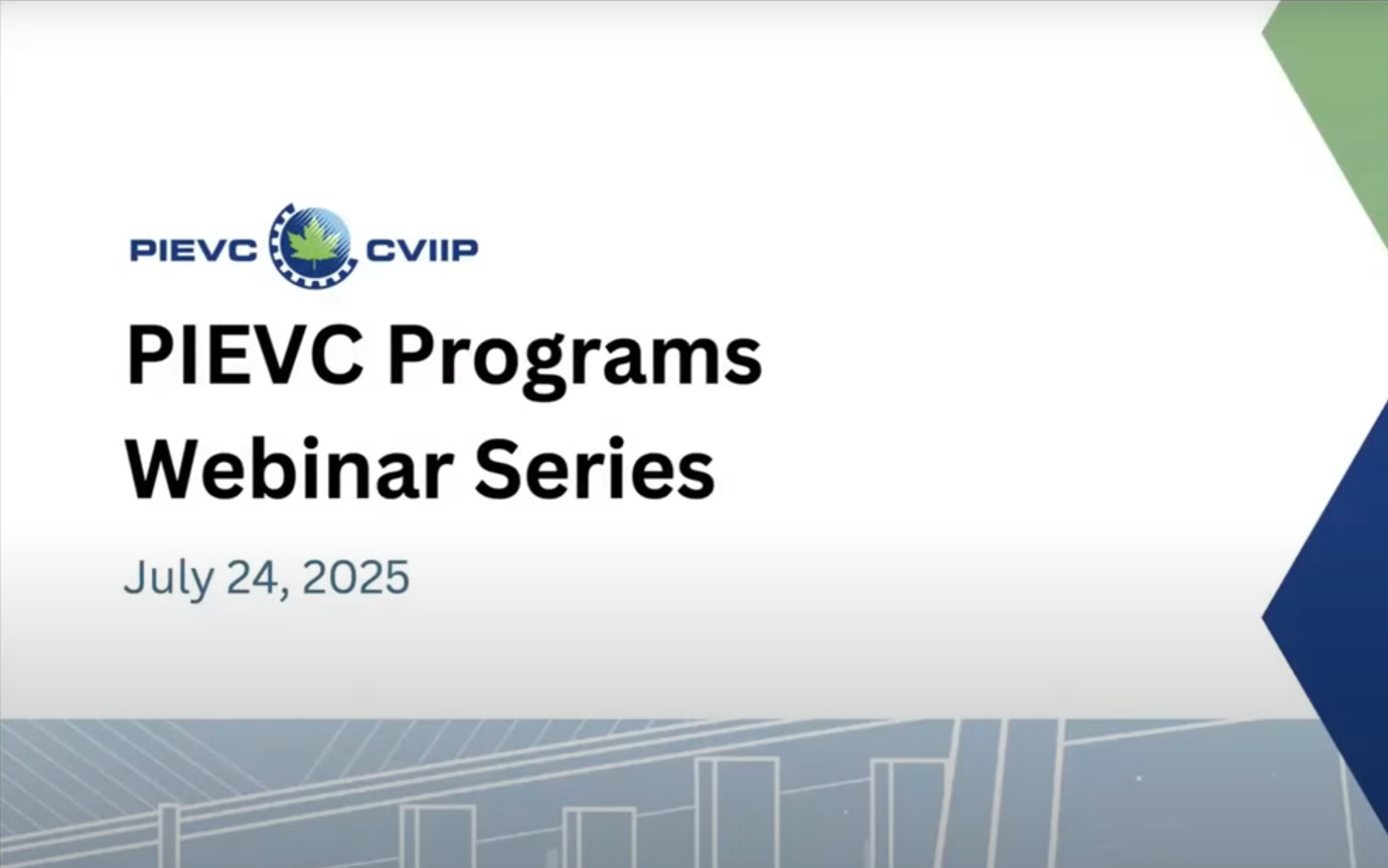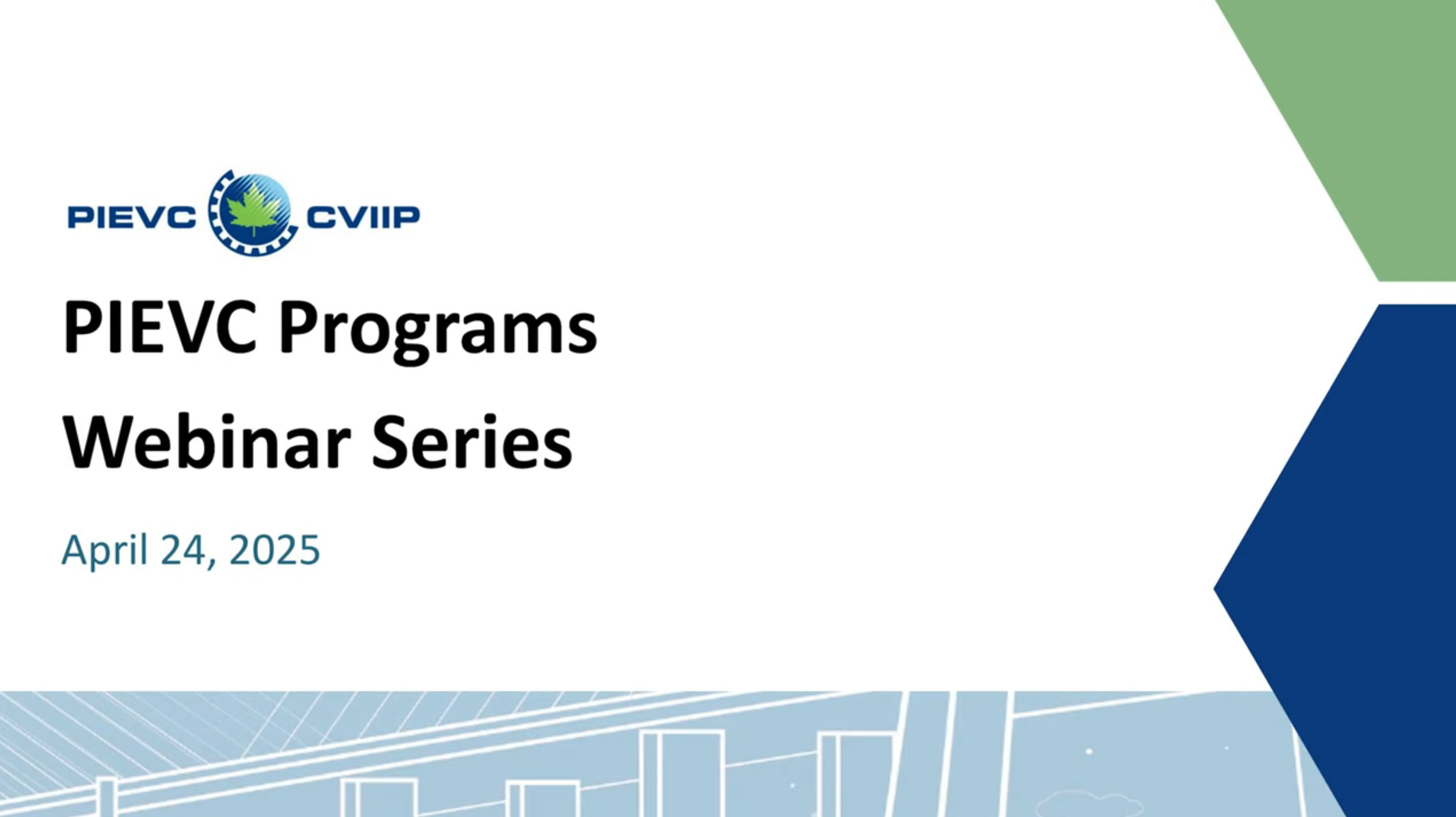
This recorded PIEVC webinar features three practitioner talks showing how the PIEVC Protocol is being applied across very different contexts—from remote Arctic operations to billion-dollar transit lines to highway network policy. Presenters walk through methods, results, and lessons learned, including how risk tolerance can be specified and used to guide design and investment decisions.
Presentations (as delivered):
-
“Specifying a Level of Climate Risk Tolerance” — Zane Sloan, P.Eng., IRP (Arcadis) & Lyle M. Unwin, P.Eng./RPF (BC Ministry of Transportation and Transit)
-
“Climate Risk and Vulnerability Assessment — Eureka High Arctic Weather Station (Nunavut)” — Hassan Rouhani (Climate Adaptation Specialist, AECOM)
-
“Embedding PIEVC into Mega-Projects” — Jessica Brislin-Higgs, MIEnvSc, CEnv, Peter Nimmrichter, M.Eng., P.Eng., IRP, and Danielle Lebre, MES (Climate Advisory, Mott MacDonald Canada Ltd.)
What you’ll learn:
-
How to apply the PIEVC Protocol/High Level Screening Guide on corridors, buildings, and mega-projects
-
Practical approaches to defining climate risk tolerance and using the 4Rs (robustness, rapidity, resourcefulness, redundancy)
-
Case-study insights from a High Arctic facility (permafrost, sea-level/coastal processes, operations)
-
Strategies for integrating PIEVC into complex programs with multiple disciplines, delivery models, and stakeholders
-
Common challenges (data, capacity, schedules) and actionable adaptations/ROI considerations
Professional credit & acknowledgement
This course is based on a webinar developed and delivered by the PIEVC Program. Content and speaker materials are credited to PIEVC and the presenters listed above.
To learn more about the PIEVC Program, visit pievc.ca.

This recorded webinar, hosted by the PIEVC Program, explores how engineers and climate professionals are applying the PIEVC Protocol to assess risks and improve infrastructure resilience. Drawing on case studies from bridges and culverts in Ontario, and building systems in British Columbia, the speakers share their experiences in conducting climate risk assessments, selecting climate scenarios, managing data gaps, and translating findings into asset management and design decisions.
Participants will gain insights into:
-
Portfolio-level vs. site-specific climate risk assessments
-
Integrating climate projections into transportation and building infrastructure planning
-
Prioritizing adaptation investments and considering return on resilience
-
Navigating staff capacity, stakeholder buy-in, and regulatory drivers
-
Lessons learned on communicating results and supporting decision-making
To learn more about the PIEVC Program, visit pievc.ca
Professional credit & acknowledgement
This course is based on a webinar developed and delivered by the PIEVC Program. Content and speaker materials are used with attribution to PIEVC and the presenters.
Presenters
-
Derry Wallis – Climate Change and Energy Specialist, County of Huron, Ontario
-
Christy Love – Principal, Energy & Climate Specialist, RDH Building Science
-
Laura Simandl, P.Eng. – Building Science & Energy Engineer, RDH Building Science Inc.
-
Harshan Radhakrishnan, P.Eng. – Manager, Climate Change & Sustainability Initiatives, Engineers and Geoscientists BC

AI Agents are redefining how businesses operate by transforming everyday tasks into seamless, intelligent processes. In this presentation, you'll discover what AI agents are, how they're distinct from traditional AI tools, and why they're becoming essential to modern business operations. Learn how these powerful systems can autonomously execute tasks, communicate naturally with users, and continuously improve their performance. This session is ideal for business leaders, technology professionals, and any engineers interested in the cutting-edge advancements shaping the future of work.

Artificial Intelligence (AI) is transforming industries, including engineering. This course explores the three fundamental concepts that every engineer should understand about generative AI. Participants will gain insight into how AI works, its strengths and limitations, and its role in engineering applications.
Through real-world examples and interactive discussions, this course will cover:
- The fundamentals of AI, including machine learning, deep learning, and large language models
- The capabilities and limitations of AI in engineering and technical applications
- Best practices for leveraging AI effectively while addressing ethical, privacy, and security concerns
This course provides 1 PDH of Technical Learning under the Engineers Nova Scotia CPD program. By the end of this session, engineers will be equipped with the knowledge to integrate AI responsibly into their professional practice.
